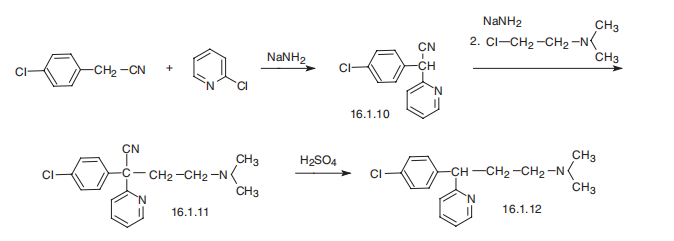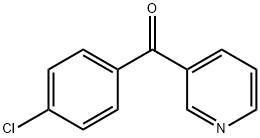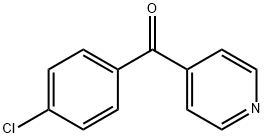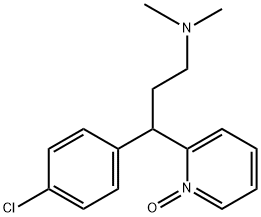Chlorpheniramine
- CAS NO.:78539-96-5
- Empirical Formula: C16H19ClN2
- Molecular Weight: 274.79
- MDL number: MFCD00053581
- SAFETY DATA SHEET (SDS)

What is Chlorpheniramine?
Description
Chlorpheniramine is an antihistamine. Antihistamines are medications used to relieve symptoms of allergies, hay fever (allergic rhinitis), and the common cold. These symptoms include sneezing, runny nose, watery eyes, and itchy throat. Chlorpheniramine is sold under different brand names, including Chlor-Trimeton®.
The Uses of Chlorpheniramine
Chlorpheniramine reduces the allergic response of the organism caused by histamine. It is used for allergy symptoms, rhinitis, and also as an ingredient in numerous compositions with ephedrine and pseudoephedrine, which are recommended for colds, upper respiratory tract infections, and allergic rhinitis. Synonyms of this drug are chlortrimeton, histaspan, tripolon, and teldrin.
Definition
Chlorphenamine is a tertiary amino compound that is propylamine which is substituted at position 3 by a pyridin-2-yl group and a p-chlorophenyl group and in which the hydrogens attached to the nitrogen are replaced by methyl groups. A histamine H1 antagonist, it is used to relieve the symptoms of hay fever, rhinitis, urticaria, and asthma. It has a role as a H1-receptor antagonist, an antipruritic drug, a histamine antagonist, a serotonin uptake inhibitor, an antidepressant and an anti-allergic agent. It is a tertiary amino compound, a member of monochlorobenzenes and a member of pyridines.
Side Effects
Side effects that you should report to your doctor or health care professional as soon as possible:
allergic reactions like skin rash, itching or hives, swelling of the face, lips, or tongue
breathing problems
changes in vision
confused, agitated, nervous
fast, irregular heartbeat
feeling faint, dizzy
seizures
tremor
trouble passing urine or change in the amount of urine
unusual sweating
unusually weak or tired
Side effects that usually do not require medical attention (report to your doctor or health care professional if they continue or are bothersome):
constipation or diarrhea
drowsy
dry mouth, nose, throat
headache
loss of appetite
stomach upset, vomiting
trouble sleeping
Synthesis
Chlorpheniramine, 3-(p-chlorophenyl)-3-(2-pyridyl)propyldimethylamine
(16.1.12), is synthesized in two ways. The first is from 4-chlorbenzylcyanide, which
is reacted with 2-chlorpyridine in the presence of sodium amide to form 4-chlorphenyl
(2-pyridyl)acetonitrile (16.1.10). Alkylating this with 2-dimethylaminoethylchloride in the
presence of sodium amide gives |?-(4-chlorphenyl)-|?-cyano-N,N-dimethyl-2-pyridinepropanamine
(16.1.11), the hydrolysis and decarboxylation of which lead to chlorpheniramine
(16.1.12).
The second way is from pyridine, which undergoes alkylation by 4-chlorobenzylchloride,
giving 2-(4-chlorobenzyl)pyridine (16.1.13). Alkylating this with 2-dimethylaminoethylchloride
in the presence of sodium amide gives chlorpheniramine (16.1.12).

Properties of Chlorpheniramine
| pka | pKa 9.16±0.02(H2O
t = 25
c = 0.002 to 0.01) (Uncertain) |
Safety information for Chlorpheniramine
Computed Descriptors for Chlorpheniramine
New Products
4,4-Difluoropiperidine hydrochloride tert-butyl 9-methoxy-3-azaspiro[5.5]undecane-3-carboxylate Indole Methyl Resin N-Isopropylurea N,N-Dicyclohexylcarbodiimide(DCC) MELDRUMS ACID 5-METHYLISOXAZOLE-4-CARBOXYLIC ACID Magnessium Bis glycinate Zinc ascorbate 1-bromo-2-butyne 2-acetamidophenol 9(10H)-anthracenone Erythrosin B, 4-Piperidinopiperidine 2-((4-morpholinophenylamino) (methylthio) methylene) malononitrile 2,4-dihydroxybenzaldehyde 3-(4-morpholinophenylamino)-5-amino-1H-pyrazole-4-carbonitrile Methyl 2-methylquinoline-6-carboxylate 2,6-dichloro-4-nitropyridine 4-Bromo-2-chlorobenzonitrile 2-(benzylamino)acetic acid hydrochloride 4-(tert-Butoxycarbonylamino)but- 2-ynoic acid 3,4-dihydro-2H-benzo[b][1,4]dioxepine 1-Phenyl-1-cycloprppanecarboxylicacidRelated products of tetrahydrofuran








You may like
-
 3-(4-amino-1-oxoisoindolin-2-yl)-1-methylpiperidine-2,6-dione 98%View Details
3-(4-amino-1-oxoisoindolin-2-yl)-1-methylpiperidine-2,6-dione 98%View Details -
 1-methylindoline-2,3-dione 98%View Details
1-methylindoline-2,3-dione 98%View Details
2058-74-4 -
 614-19-7 98%View Details
614-19-7 98%View Details
614-19-7 -
 3112-85-4 Methyl phenyl sulfone 98%View Details
3112-85-4 Methyl phenyl sulfone 98%View Details
3112-85-4 -
 20677-73-0 (2,2-diethoxyethyl)methylamine 98%View Details
20677-73-0 (2,2-diethoxyethyl)methylamine 98%View Details
20677-73-0 -
 3-(4-(hydroxyamino)-1-oxoisoindolin-2-yl)piperidine-2,6-dione 98%View Details
3-(4-(hydroxyamino)-1-oxoisoindolin-2-yl)piperidine-2,6-dione 98%View Details -
 57381-49-4 2-bromo-4-chlorobenzonitrile 98%View Details
57381-49-4 2-bromo-4-chlorobenzonitrile 98%View Details
57381-49-4 -
 4,6-dichloropyrimidine-5-carbaldehyde 98%View Details
4,6-dichloropyrimidine-5-carbaldehyde 98%View Details
5305-40-8
